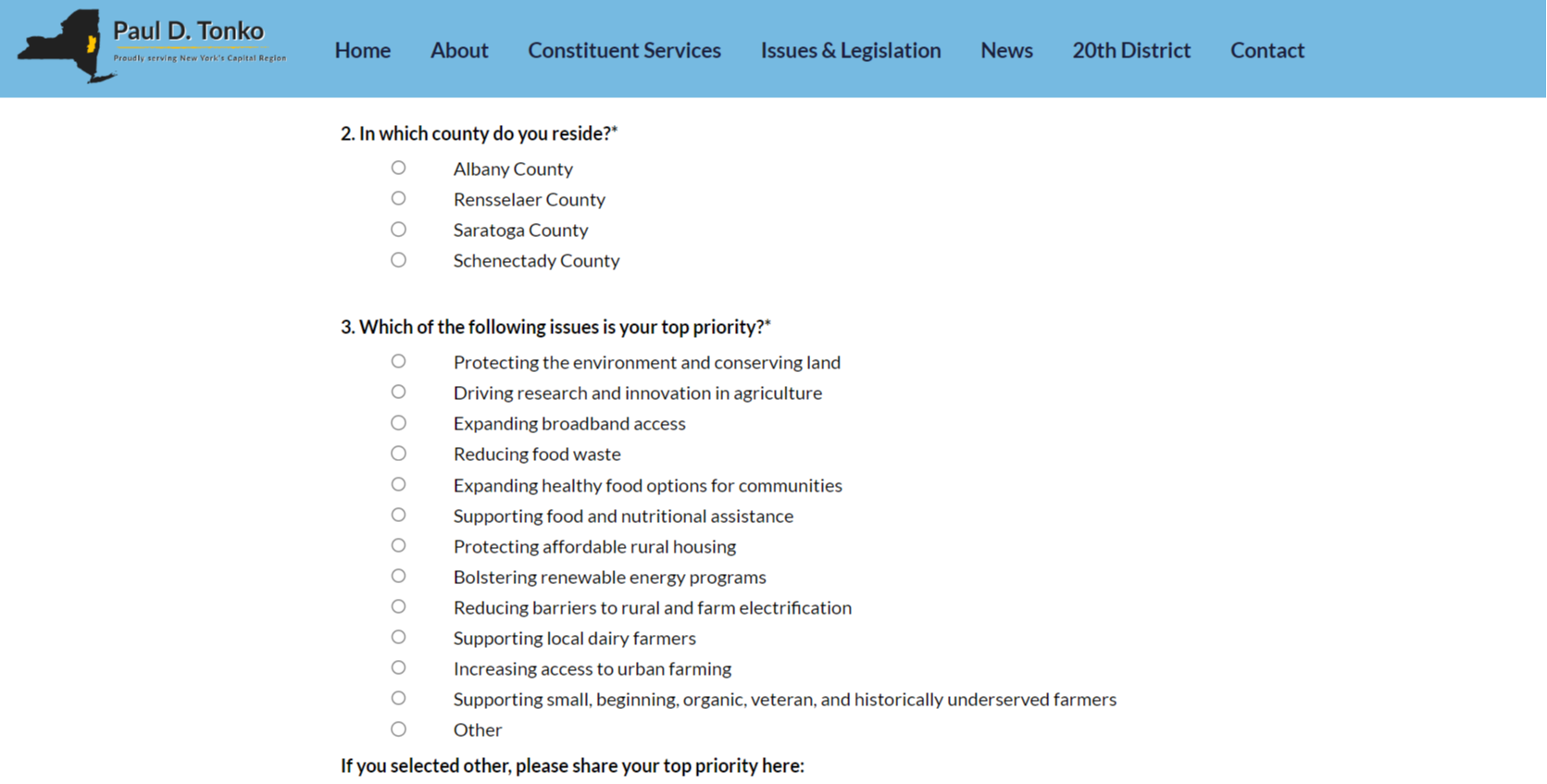April 1, 2023
Dear Friends,
Approximately every five years, Congress advances a legislative package that covers a wide array of issues that impact the daily lives of the American people. This legislation, known as the Farm Bill, addresses policy areas ranging from agriculture and nutrition to key investments in broadband and clean energy infrastructure.
The first Farm Bill was enacted in 1933 in response to the crises of the Great Depression and the Dust Bowl. Part of President Franklin D. Roosevelt’s New Deal, the bill’s goals were to ensure an adequate food supply, to keep food prices fair for both farmers and consumers, and to protect and sustain our nation’s vital natural resources. Over the past 90 years Congress has passed an additional 17 Farm Bills, including the most recent edition in 2018. Each new package is updated and adjusted to ensure it adequately addresses the most pressing issues faced by our farmers, our consumers, and our citizens.
With the latest legislation set to expire this September, Congress will once again come together this year to draft, debate, and advance another Farm Bill.
Each Farm Bill deals with far more than just farming and agriculture. The bill contains sections called “titles” that cover a wide swath of policy areas that meet the needs of American families. Last year’s bill included 12 titles — a few of those sections covered:
- Nutrition — Among other smaller programs, this title funds the critical Supplemental Nutrition Assistance Program (SNAP) that provides benefits to help millions of families afford food.
- Rural Development — This title focuses on driving economic growth in rural communities. It covers programs and grants for broadband expansion, housing, infrastructure, and more.
- Forestry — Forestry empowers farmers to be stewards of the environment by supporting forestry management programs run by USDA’s Forest Service.
- Energy — This essential title encourages the growth and processing of crops for biofuels, assists with installation of renewable energy systems, and supports research related to energy.
To learn more about the policy areas covered by the Farm Bill, you can visit my website’s Farm Bill landing page HERE.
With this background on the Farm Bill and its incredible impact in mind, I want to hear from all of you about your priorities for the next Farm Bill! What are your thoughts on how we can improve this package to best meet the needs of our communities?
Please let me know by filling out the survey below.

[click survey image to open in web browser]
I will review your insights and share them with my peers in Washington to ensure that our Capital Region’s voice is heard and that the programs that matter most to you are included in our next Farm Bill.
As always, thank you for reading.
Your friend,

DID YOU KNOW?
My office and I are working to make sure you remain informed with the latest updates and recommendations from federal agencies. With that in mind, here is some information that may be of interest to you:
- The U.S. Department of Commerce is launching the Internet for All (IFA) Initiative to extend reliable broadband internet service to communities across the nation.
- This week, Secretary of Commerce Gina Raimondo announced a Request for Comment (RFC) on Digital Equity Act programs to be administered by the National Telecommunications and Information Administration (NTIA). The RFC specifically targets:
- The $1.44 billion State Digital Equity Capacity Grant Program; and
- The $1.25 billion Digital Equity Competitive Grant Program.
- This represents more than $2.5 billion in funding to promote adoption and meaningful use of the internet among underrepresented communities.
- You can submit your comments HERE. The comment period ends May 1, 2023.
- To see the timeline for National High Speed Internet Deployment, click HERE.
- For more information on the Biden-Harris Administration’s high-speed internet programs, please visit InternetForAll.gov.